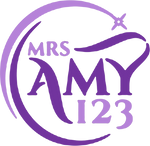
I have always used drama in my classroom. In fact, the first lesson I ever got to teach was a reader's theatre lesson. I utilise drama in all my classrooms no matter the year level, relish when it my classes turn to do an assembly and have taught an extension group in upper school drama.
I have done most of my learning of teaching drama on the job through trial and error and today I am going to share my top tips for teaching drama with you. These tips can be applied to any classroom, age or skill level.

Top Tip 1: Have clearly defined rules.
Repeat the drama rules each lesson and ensure students know exactly what is and isn't allowed. Drama lessons (like any lesson under The Arts umbrella) are known for easily getting out of control and as such many teachers shy away from them.
I always write my rules in the positive but it is important to go through what they do and do not look like in practice. If you ARE always trying your best then you ARE NOT crying or getting upset because you didn't get the character/story line/group that you wanted. If you ARE supporting your peers than you ARE NOT putting anyone down, mocking anyone or teasing.
Top Tip 2: Enforce the rules with an iron fist.
This needs to be its own tip because this is where I went wrong when I taught my first drama unit. First the volume went up and up, then students started getting silly then everyone was off task and I was in a panicked, stressed out state. But when I think back, it always started with one student, who got a couple others off who then infected the whole class.It is like the very hard lesson all teachers have to learn where we have to be very strict in the first week to ensure a strong foundation and a good year.
Top Tip 3: Have a warm up and a warm down exercise.
Having a clear end and beginning will help your students to switch between what is allowed in drama class and what isn't allowed in others subjects areas. It is also a great way to practice the basic skills of drama such as voice projection. Think of it like doing mental maths at the beginning of a maths lesson.
Top Tip 4: Have a focus for each lesson.
Drama can be a subject on its own or a tool utilised within another subject lesson but it should always have a focus. Drama should not be activities thrown together. They should link together to teach, practice or perfect skills. Such focuses could be movement, voice, characterisation, improvisation or emotion. If you are utilising drama as a tool within another area then ensure students will get out of the activity what you need.
Top Tip 5: Have a time for reflection.
Drama is a very fun subject, A drama lesson can be filled with a lot of laughter, noise, excitement and applause. The focus of the lesson can be easily lost so it is important to reflect on what has been learnt or achieved at the end of the lesson. I prefer to do this after the warm down as students are generally more focused and more likely to retain what is being said.
Top Tip 6: Give EVERY student the same opportunity.
I am a shy person. In school I was the quiet one that you might almost forget was in your class. But come any drama activities I was an Oscar winning performer (okay maybe not that good....but one of the best in the class). Don't pigeon hole students. For some, drama is their time to shine. Encourage all the students to have a go and some may surprise you.
If you would like more fun and engaging drama activities have a look at my Drama Activities Book linked below!







